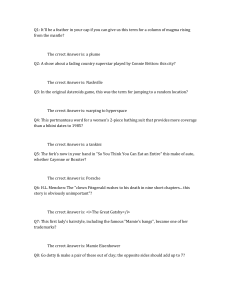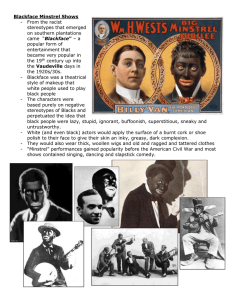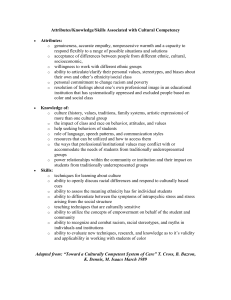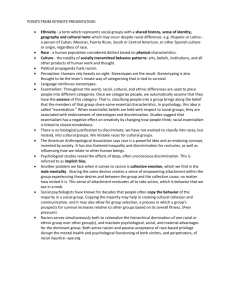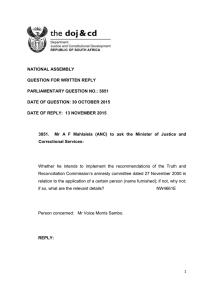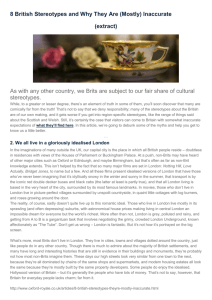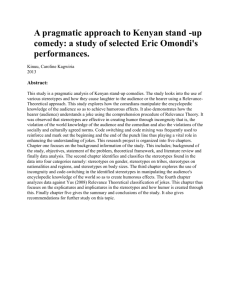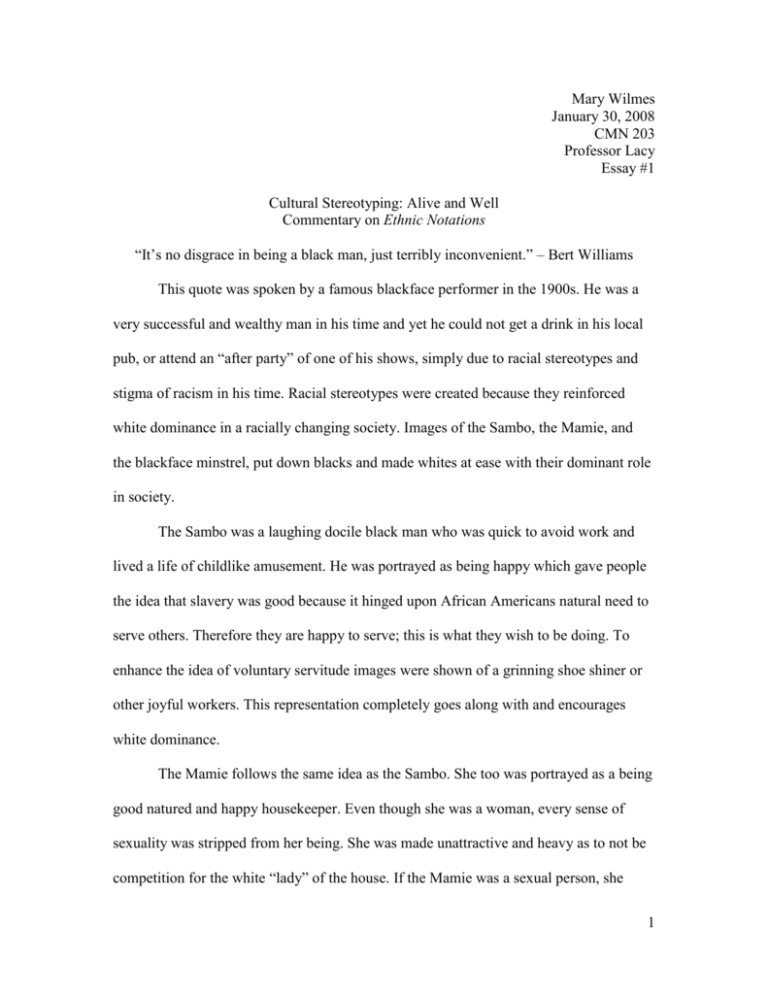
Mary Wilmes
January 30, 2008
CMN 203
Professor Lacy
Essay #1
Cultural Stereotyping: Alive and Well
Commentary on Ethnic Notations
“It’s no disgrace in being a black man, just terribly inconvenient.” – Bert Williams
This quote was spoken by a famous blackface performer in the 1900s. He was a
very successful and wealthy man in his time and yet he could not get a drink in his local
pub, or attend an “after party” of one of his shows, simply due to racial stereotypes and
stigma of racism in his time. Racial stereotypes were created because they reinforced
white dominance in a racially changing society. Images of the Sambo, the Mamie, and
the blackface minstrel, put down blacks and made whites at ease with their dominant role
in society.
The Sambo was a laughing docile black man who was quick to avoid work and
lived a life of childlike amusement. He was portrayed as being happy which gave people
the idea that slavery was good because it hinged upon African Americans natural need to
serve others. Therefore they are happy to serve; this is what they wish to be doing. To
enhance the idea of voluntary servitude images were shown of a grinning shoe shiner or
other joyful workers. This representation completely goes along with and encourages
white dominance.
The Mamie follows the same idea as the Sambo. She too was portrayed as a being
good natured and happy housekeeper. Even though she was a woman, every sense of
sexuality was stripped from her being. She was made unattractive and heavy as to not be
competition for the white “lady” of the house. If the Mamie was a sexual person, she
1
might arouse desire and interest in the Master of the house. She helped reinforce that idea
that it was completely unacceptable and inappropriate for a man to be involved with a
woman outside his race, even though relationships between slave owners and their slaves
did exist. The dichotomy between the Mamie’s role and the white Mistress’s role are also
interesting. The Mamie is the strong head of her own household, and is considered to be
the “controller” of males even though her role reverses completely in the white house.. In
the Mistress’s house she is seen as fragile and dependent to the master of the household,
in addition to being a completely sexual person.
The minstrels, those who performed black face and those who performed in the
vaudeville scene, provided entertainment for the white dominant society, further
demonstrating that blacks simply existed for the disposal and use of the dominant race.
They reinforced the idea that their lifestyle was completely a joke and was not to be taken
seriously by anyone. Keep in mind the example of Bert Williams. To be taken seriously
as a performer he had to change his name to something “white”. In addition, his whole
act is making a mockery of his race. Even though by the end of his career he was able to
wipe out most racism from his routine, he still suffered the effects of racism every day of
his life. Williams’ personal effects are evident in addition to the fact that he helped open
the door to more blackface performance and made the craft more popular among its white
audience, only encouraging stereotypes even more.
Even though stereotypes were created to ensure the whites of their racial
dominance, the same cannot be said in our time today. Despite the fact that these
stereotypes are dated and do not relate to present time, some have transcended that gap
and have been revamped. My first thought while watching the movie and seeing the part
2
about the Sambo was contemporary black comedians like Dave Chapelle and Chris Rock.
Although the stigma of servitude does not exist in these modern day examples, many
attributes of the Sambo can be found in these men. They laugh and make jokes; they do
not take anything seriously. There is no existence of an actual job or work to be done, and
one can assume that if work existed there would be must resistance in these two men
completing it. These stereotypes were formed for a reason that no longer exists today.
We have made great strides for equality in the United States and no race is used at the
disposal of another. Present time has changed, and so have we reminding us of the
inherent right of everyone to basic human needs and rights.
Works Cited
Riggs, M. T. (Producer and Director) & Salmon, K. (Associate Producer) Ethnic Notions
[documentary]. San Francisco: California Newsreel.
3

